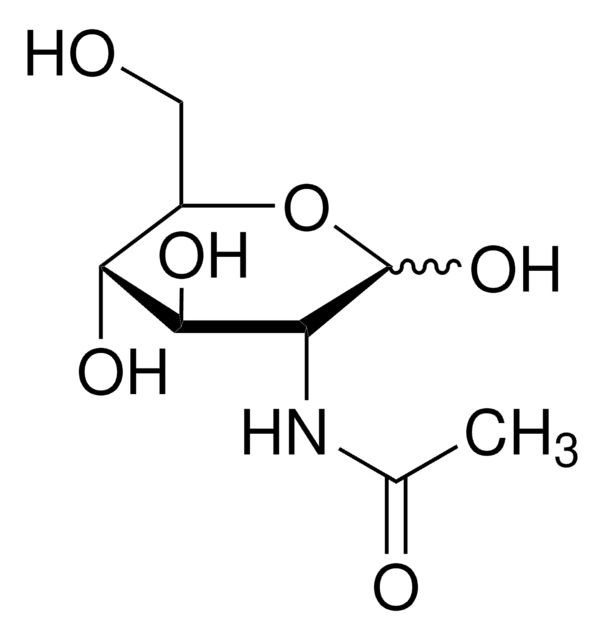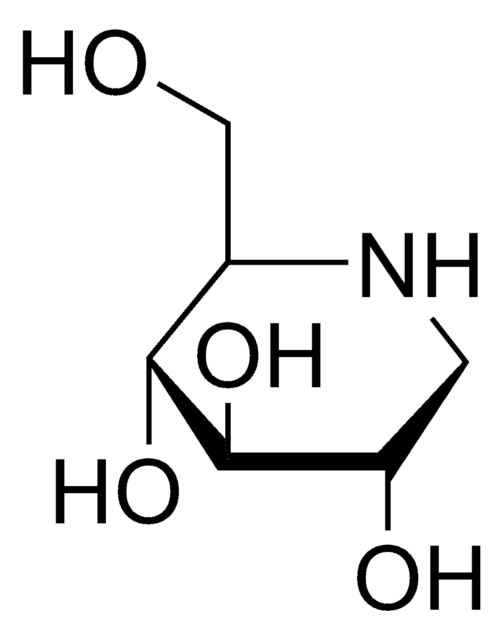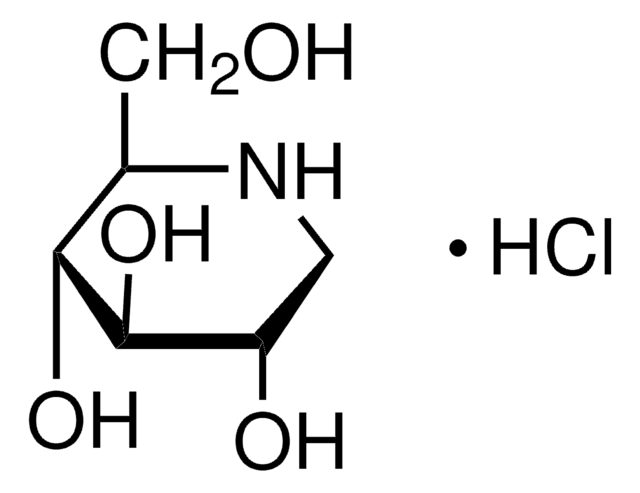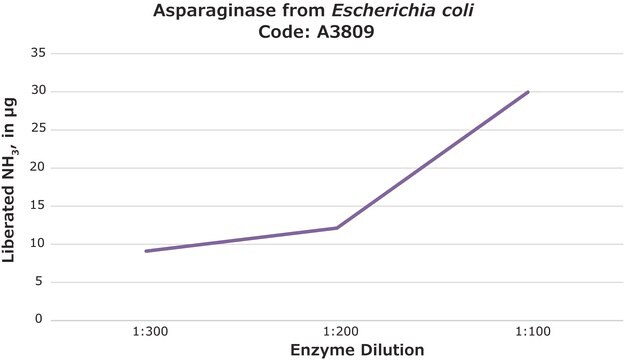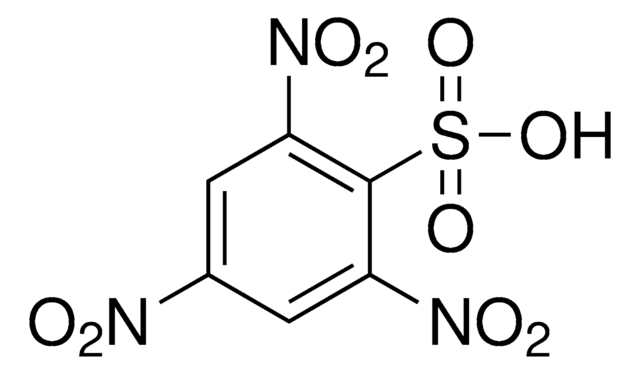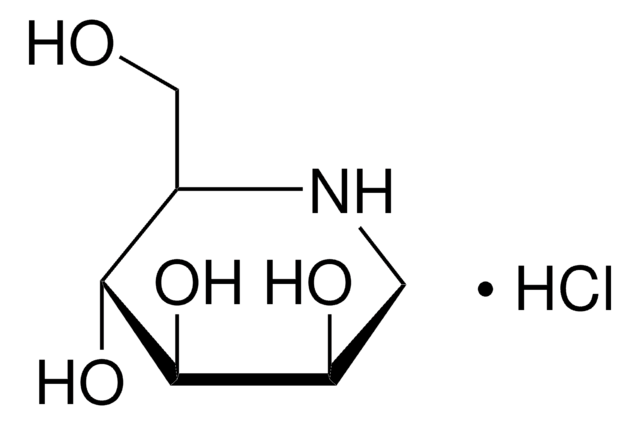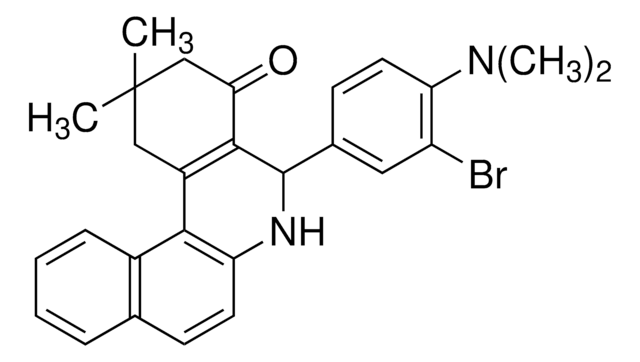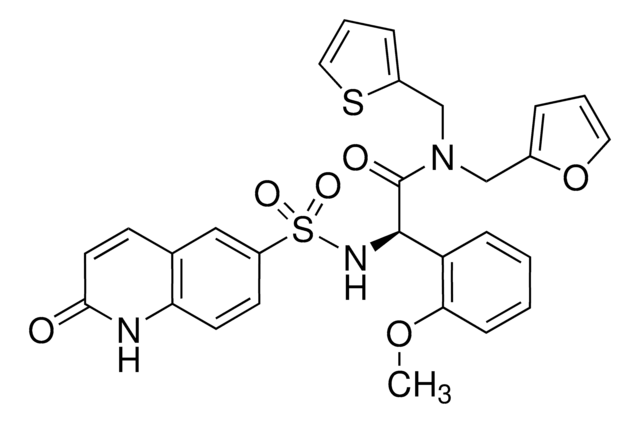D2141
6-Diazo-5-oxo-L-norleucine
>95% (TLC), suitable for ligand binding assays
Synonym(s):
(S)-2-Amino-6-diazo-5-oxocaproic acid, DON
About This Item
Recommended Products
product name
6-Diazo-5-oxo-L-norleucine, crystalline
Assay
>95% (TLC)
Quality Level
form
crystalline
technique(s)
ligand binding assay: suitable
color
light yellow
mp
145 °C
antibiotic activity spectrum
neoplastics
Mode of action
enzyme | inhibits
storage temp.
−20°C
SMILES string
N[C@@H](CCC(=O)C=[N+]=[N-])C(O)=O
InChI
1S/C6H9N3O3/c7-5(6(11)12)2-1-4(10)3-9-8/h3,5H,1-2,7H2,(H,11,12)/t5-/m0/s1
InChI key
YCWQAMGASJSUIP-YFKPBYRVSA-N
Looking for similar products? Visit Product Comparison Guide
General description
Application
Biochem/physiol Actions
Signal Word
Danger
Hazard Statements
Precautionary Statements
Hazard Classifications
Acute Tox. 3 Dermal - Acute Tox. 3 Inhalation - Acute Tox. 3 Oral
Storage Class Code
6.1C - Combustible acute toxic Cat.3 / toxic compounds or compounds which causing chronic effects
WGK
WGK 3
Flash Point(F)
Not applicable
Flash Point(C)
Not applicable
Personal Protective Equipment
Regulatory Listings
Regulatory Listings are mainly provided for chemical products. Only limited information can be provided here for non-chemical products. No entry means none of the components are listed. It is the user’s obligation to ensure the safe and legal use of the product.
JAN Code
D2141-25MG:
D2141-5MG:
D2141-5MG-PW:
D2141-25MG-PW:
D2141-VAR:
D2141-BULK:
Certificates of Analysis (COA)
Search for Certificates of Analysis (COA) by entering the products Lot/Batch Number. Lot and Batch Numbers can be found on a product’s label following the words ‘Lot’ or ‘Batch’.
Already Own This Product?
Find documentation for the products that you have recently purchased in the Document Library.
Customers Also Viewed
Articles
Sigma-Aldrich presents an article about how proliferatively active cells require both a source of carbon and of nitrogen for the synthesis of macromolecules. Although a large proportion of tumor cells utilize aerobic glycolysis and shunt metabolites away from mitochondrial oxidative phosphorylation, many tumor cells exhibit increased mitochondrial activity.
Our team of scientists has experience in all areas of research including Life Science, Material Science, Chemical Synthesis, Chromatography, Analytical and many others.
Contact Technical Service


